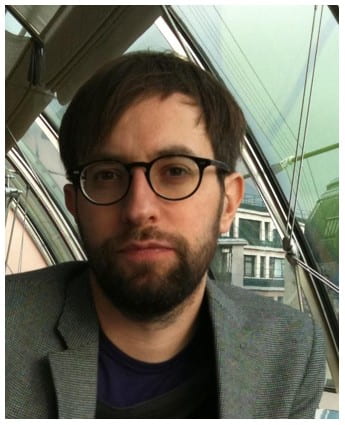 Welcome to the first in a series of blog posts from the Department of Psychology, where our staff will be lifting the lid, to let you glimpse behind the scenes of life here at Goldsmiths, University of London. We would also love you to get in touch with us via this blog or on social media, to let us know what you think – and to find out more.
Welcome to the first in a series of blog posts from the Department of Psychology, where our staff will be lifting the lid, to let you glimpse behind the scenes of life here at Goldsmiths, University of London. We would also love you to get in touch with us via this blog or on social media, to let us know what you think – and to find out more.
Our Head of Department, Prof. Andy Bremner is starting us off by looking at how we work together, both with each other in the Department, and across Goldsmiths.
Prof. Andy Bremner is on Twitter at @Andy_Bremner
Welcome to the brand new Goldsmiths Psychology Blog. It’s a pleasure to kick off with this first post. In June last year I started as the Head of Department, and I’ve been racing to catch up ever since. There is a huge amount going on here and I want to try to set the scene by giving an idea of the scope of things: What we do, what we stand for and what I think we’re trying to achieve.
The Department of Psychology at Goldsmiths, University of London, was established at Goldsmiths in the mid-1960s, at a time when Goldsmiths was expanding quite a bit, and making the name it has today for the arts, humanities and social sciences. Today we’re a medium-to-large psychology department for the UK with 45 or so full time academics, and around 800 students across undergraduate and postgraduate programmes.
Our department’s place at Goldsmiths is important for us. Psychology being the popular degree subject it is, there are hundreds of places to learn about and do research in psychology across the UK. But being at Goldsmiths makes us quite unique. Our research and our teaching covers the full scope of psychology, but we have a strong Goldsmiths flavour. A number of the academics and researchers in the department focus their research on cross-disciplinary topics such as the psychology and neuroscience of music, the psychology of aesthetics, the neuroscience of dance, media research and so on. This makes us the UK specialist for the intersection of psychology and the arts.
This arts flavour makes its way into our teaching also. Our third year BSc students can select optional modules like: “Psychology of the arts, aesthetics and attraction”, “Psychological approaches to music”. We run a very successful MSc in Music, Mind and Brain. But we also cover the full scope of psychology of course. We need to do this in order that our researchers and students can follow their noses, and make the connections that seem right. So we cover the usual things. Brain and cognition, through development, social psychology, to individual differences and psychopathology. The result is that many researchers in the department spend much of their time trying to break down barriers between these traditional sub-disciplines.
There are also lots of us working on making psychology relevant to life outside of university. Here’s the new Forensic Psychology Unit, led by Professor Fiona Gabbert, which specialises in applying psychological theory and methods to eye-witness identification and interviewing of witnesses and victims. Other examples of our research which has direct influence on practice and policy include work on bullying, rehabilitation after brain injury, and consumer use of digital media. Led by Professor Jonny Freeman, a “spin-out” commercial research company in the department, i2 media research, aims to understand the digital media experiences and needs of consumers.
So hopefully I’ve done a decent job of telling you how Psychology at Goldsmiths is flourishing. Something else about this department is important too though, and it’s a bit less tangible. We back each other, and we value each other as students, as academics, and as colleagues. I see this in a few ways. Firstly, I don’t know of any psychology department in the UK whose academics are more collegiate and supportive of each other. Secondly, there is a strong sense to me in which we’re trying to achieve something important in higher education which can so easily get lost. Our academics are teaching students to nurture and develop their own thoughts and opinions. We want students to find out what it is interesting, and to ask questions: of our academics, of themselves and each other, of the (scientific) literature, and of the world. Because we’re psychologists, sooner or later those questions turn into experiments. Personally, I can think of few things more rewarding than working with students to ask and answer interesting questions through research. That’s something I think we do really well.
